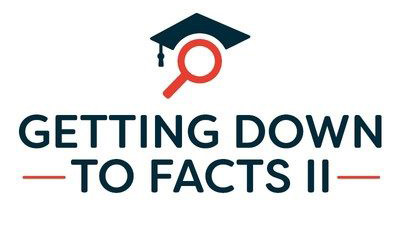
Getting Down to Facts in California Education Attallah Administrator Contributes to Large-Scale, State-Wide Research Study
September 28, 2018
Dr. Michelle Hall, Attallah College of Educational Studies’ Director of Program Assessment and Improvement, was one of the contributors to a major update to a key research project, Getting Down to Facts II (GDTF II), that examines the many facets of California’s public education system. The report provides a broad snapshot of the current state of California’s education policy, with recommendations for paths forward.

Dr. Michelle Hall, Attallah College Director of Program Assessment and Improvement
Given that California has the nation’s largest K-12 public education system, with 6.2 million children served daily, what we do here has far-reaching effects on the health of our state and the nation as a whole.
Getting Down to Facts II
An update to the first GDTF report published in 2007, GDTF II analyzes the effects of reforms adopted over the past decade in California’s K-12 education system. The goal was to identify what is working and where adjustments and investments are still necessary in four areas: student success, governance, personnel, and finance. The 2018 report consists of 36 studies and 19 research briefs compiled by more than 100 researchers from across the nation.
Coordinated by Stanford University and Policy Analysis for California Education (PACE), the GDTF II research effort was funded by seven foundations, including the Bill and Melinda Gates Foundation.
In a national press release about GDTF II, Dr. Susanna Loeb, principal investigator of GDTF in 2007 and GDTF II 2018 summarized the report’s key findings: “We found that over the last decade California made positive strides in public education by advancing K-12 academic standards and adopting a new funding model, but schools face a great need for policies that address system weaknesses and build capacity.”
LCFF & Stakeholder Engagement
Coauthored with researchers from the University of Southern California and University of California, Berkeley, Dr. Michelle Hall’s contribution to GDTF II is entitled “Taking stock of stakeholder engagement in California’s Local Control Funding Formula: What can we learn from the past four years to guide next steps?” It focuses on California’s Local Control Funding Formula (LCFF), a law enacted in 2013–2014 that fundamentally changed how local educational agencies (LEAs), such as school districts and charter schools, are funded. LCFF gives LEAs autonomy, but also requires engagement with key stakeholders, including parents, students, and educators.
Most analyses of LCFF to date, however, have provided only one-year snapshots of stakeholder engagement. With this study, Dr. Hall and her colleagues sought to determine what local leaders have learned over the past four years.
“State leaders believed that LCFF would result in more effective policymaking, aligning resource decisions with community needs rather than needs defined in Sacramento,” says the report. But it goes on to explain that “statewide survey and case study data indicate widespread struggles to attract participation, particularly among traditionally underserved.”
 Based on their findings, the report recommends these next steps for state leaders and educators:
Based on their findings, the report recommends these next steps for state leaders and educators:
- Improve public awareness of LCFF and its equity goals.
- Clarify the purpose of engagement and consider adjustments.
- Help build district capacity to engage stakeholders in meaningful ways.
- Help build local political capacity.
- Clarify roles, provide support, and incentivize deeper involvement of local school board members.
- Support deeper thinking about equity and how that relates to engagement.
“Our goal is to provide policy experts and lawmakers with data and analysis so they can continue to improve. We believe these actions and investments will help state leaders and districts to realize LCFF’s vision of local empowerment and better serve all students,” said Dr. Hall.
Dr. Margaret Grogan, Dean of the Attallah College, is enthused to see Chapman University’s contribution to such important research.
“The work of Michelle Hall and her colleagues is very timely as we strive to build genuine partnerships between schools and their communities in California,” said Dr. Grogan. “When parents can become full partners in their children’s education, academic achievement will soar.”

